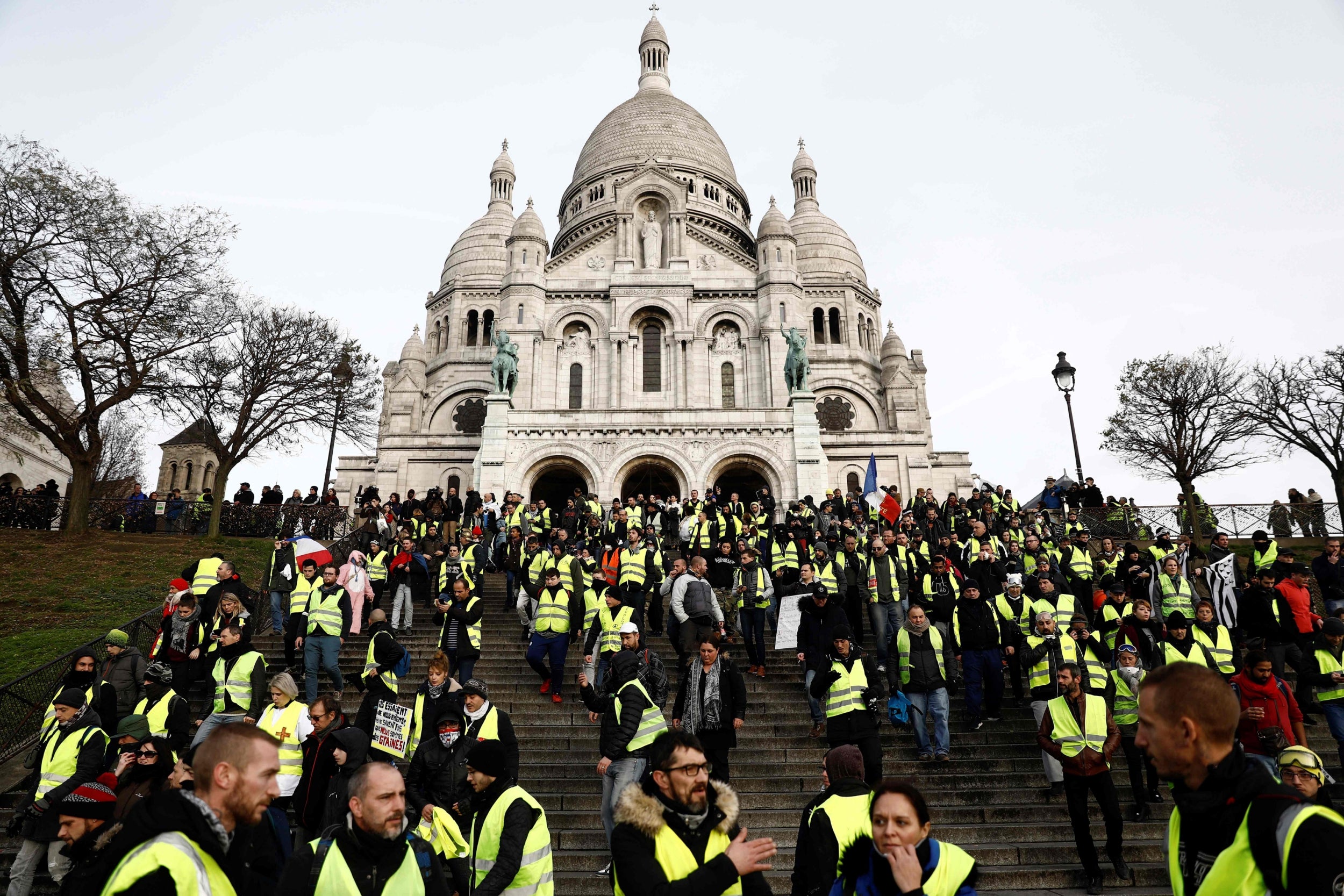I visited the school that educates the French political elite and this is what I learned about Brexit
My teenage counterparts at the Lycée Henri IV school – the alma mater of president Emmanuel Macron – laugh at the prospect of a ‘Frexit’

Your support helps us to tell the story
From reproductive rights to climate change to Big Tech, The Independent is on the ground when the story is developing. Whether it's investigating the financials of Elon Musk's pro-Trump PAC or producing our latest documentary, 'The A Word', which shines a light on the American women fighting for reproductive rights, we know how important it is to parse out the facts from the messaging.
At such a critical moment in US history, we need reporters on the ground. Your donation allows us to keep sending journalists to speak to both sides of the story.
The Independent is trusted by Americans across the entire political spectrum. And unlike many other quality news outlets, we choose not to lock Americans out of our reporting and analysis with paywalls. We believe quality journalism should be available to everyone, paid for by those who can afford it.
Your support makes all the difference.Aged just 14, I have been plunged into the epicentre of the young French political elite; the Lycée Henri IV. The school has educated French president Emmanuel Macron, his 29-year-old minister Gabriel Attal, the leader of the Republican Party, Laurent Wauquiez, and Henri d’Orléans, the Royalists’ favourite pretender.
The seeds of the school may have been planted in the sixth century by Saint Geneviève, who saved Paris from the barbarous Attila the Hun, but they were watered with the blood baths of the terror. It later blossomed as the first state school in France and since then it has had a tight grip on the French ruling class.
Now inside the school, and using only my broken French, I have tried to untangle the knot of French politics, the nation's attitudes to England, to Brexit and to the EU. Are these young leaders-to-be disgusted with Britain's decision to withdraw from pan-European politics, or do they admire our courage? Do they fear the change to come, or has it angered them?
Louise Rouxel, 15, who has visited Brighton on an English course, delivered her thoughts about Britain with the melodramatic tone of the Comedié Française; "Beans, beans and more beans!" She had been scarred by English cooking but she nevertheless believes Britain is "mad" to leave the European Union. She seemed horrified by the prospect of Brexit.
However 16-year-old Basile Connan Boule is more concerned for the balance of power in Europe. "France will be the only nuclear power," he said. "Without Britain, France shall be left to defend the borders of Europe, with little help, unless Germany expands her military to be capable of an offensive." However, he believes Germany has "no interest" in strengthening her military as she desperately did not want to repeat the catastrophes of the 20th century.
A shared fear among pupils is that Brexit will widen the English Channel.That idea is rooted in the historical ties that we share. There is still deep respect for the British, who fought alone for those few vital moments in 1940. The first post-war British ambassador to Paris, Duff Cooper, proposed an Anglo-French alliance – the Treaty of Dunkirk, signed on the French side by Léon Blum, a resistance hero and a former student at Henri IV. France and Britain have been good allies for well over half a century yet Brexit may jeopardise this relationship. The Anglophiles of the Henri IV admire Britain but feel "abandoned".
The French students seemed united that Brexit would have negative consequences. Some thought a second referendum would stop the "chaos". others believed France should "respect" the decision of Britain. However, my class gave unanimous support for the European Union. As we strolled around the school’s medieval cloisters and the concept of "Frexit" was openly mocked. In response, I recalled how I had wrongly predicted Britain would vote strongly to Remain. One Laöcoon spoke up, fearing the fall of Macron and warning from rubble of En Marche! would rise the nationalistic Le Pen.
The soundtrack to my stay inside the school has been the gathering of rioters and the warning sirens of anti-riot police, unheard voices shouting for freedom against Macron’s absolute majority in the French Assembly. Despite the unrest, my classmate – a leader of Les Jeunesse Avec Macron, or Youth with Macron – admitted that on a personal level he feels the yellow vest protesters have a "legitimate cry" and the French "people are disconnected from the elites".
As that conversation demonstrated, it would be misleading to portray the Lycée Henri IV as a Soviet-style Inner Party School implementing Europa ideology. The academy still has the glory of the Republic, the vibrancy of France. It still retains the flame of liberty that was ignited in the Revolution and preserved even in the darkest years of French history. But these politicians of the future are Europhiles, and Brexit will put a strain on our own future leaders' relationships with them.
Join our commenting forum
Join thought-provoking conversations, follow other Independent readers and see their replies
Comments